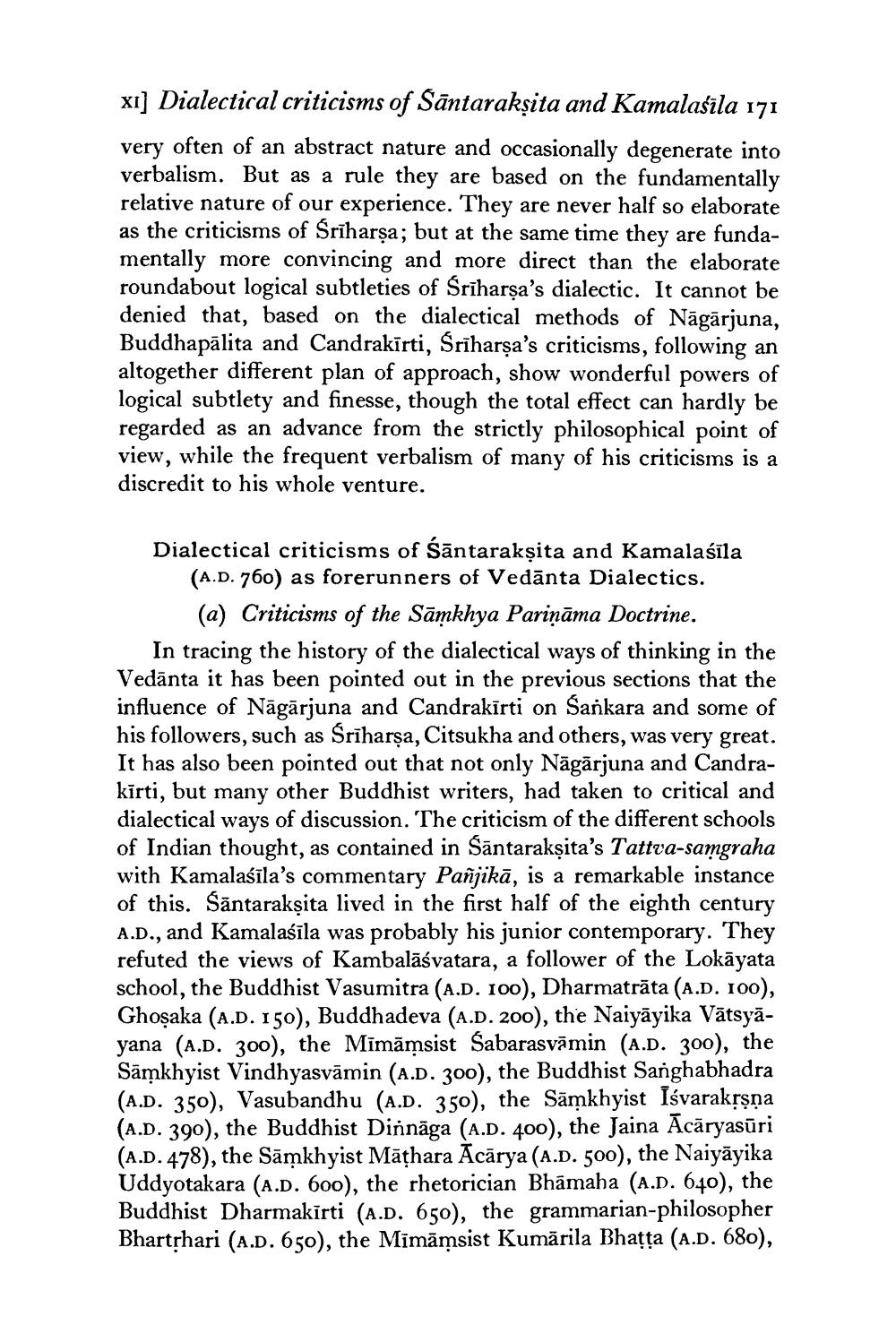________________
xi] Dialectical criticisms of Sāntarakṣita and Kamalasīla 171 very often of an abstract nature and occasionally degenerate into verbalism. But as a rule they are based on the fundamentally relative nature of our experience. They are never half so elaborate as the criticisms of Sriharşa; but at the same time they are fundamentally more convincing and more direct than the elaborate roundabout logical subtleties of Sriharşa's dialectic. It cannot be denied that, based on the dialectical methods of Nāgārjuna, Buddhapālita and Candrakīrti, Sriharşa's criticisms, following an altogether different plan of approach, show wonderful powers of logical subtlety and finesse, though the total effect can hardly be regarded as an advance from the strictly philosophical point of view, while the frequent verbalism of many of his criticisms is a discredit to his whole venture.
Dialectical criticisms of śāntarakṣita and Kamalaśīla
(A.D. 760) as forerunners of Vedānta Dialectics.
(a) Criticisms of the Sāmkhya Pariņāma Doctrine. In tracing the history of the dialectical ways of thinking in the Vedānta it has been pointed out in the previous sections that the influence of Nāgārjuna and Candrakīrti on Sankara and some of his followers, such as Sriharsa, Citsukha and others, was very great. It has also been pointed out that not only Nāgārjuna and Candrakirti, but many other Buddhist writers, had taken to critical and dialectical ways of discussion. The criticism of the different schools of Indian thought, as contained in Sāntarakṣita's Tattva-samgraha with Kamalaśīla's commentary Pañjikā, is a remarkable instance of this. Sāntarakṣita lived in the first half of the eighth century A.D., and Kamalaśīla was probably his junior contemporary. They refuted the views of Kambalāśvatara, a follower of the Lokāyata school, the Buddhist Vasumitra (A.D. 100), Dharmatrāta (A.D. 100), Ghoşaka (A.D. 150), Buddhadeva (A.D. 200), the Naiyāyika Vätsyāyana (A.D. 300), the Mīmāmsist Sabarasvāmin (A.D. 300), the Sāmkhyist Vindhyasvāmin (A.D. 300), the Buddhist Sanghabhadra (A.D. 350), Vasubandhu (A.D. 350), the Sāmkhyist Iśvarakrsna (A.D. 390), the Buddhist Dinnāga (A.D. 400), the Jaina Ācāryasūri (A.D. 478), the Sāņkhyist Māthara Ācārya (A.D. 500), the Naiyāyika Uddyotakara (A.D. 600), the rhetorician Bhāmaha (A.D. 640), the Buddhist Dharmakīrti (A.D. 650), the grammarian-philosopher Bharthari (A.D. 650), the Mīmāmsist Kumārila Bhatta (A.D. 680),




